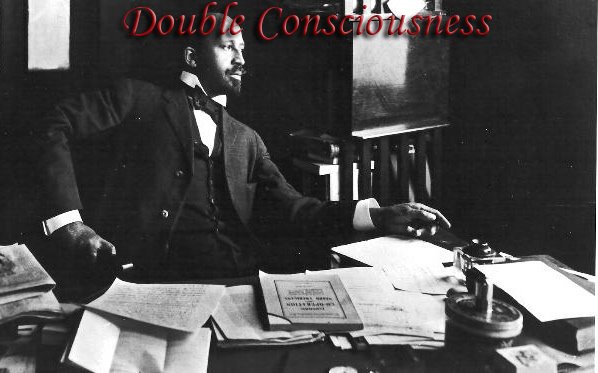First, some articles on Black males.
Reisig, Michael D. et. al. "The Effects of Racial Inequality on Black Male Recidivism." Justice Quarterly 24, no. 3 (Sept. 2007): 408-434.
Macrostructural opportunity theorists posit that the unequal distribution of economic resources across racial groups promotes animosities among disadvantaged minorities, disrupts community integration, and fosters criminal activity. Guided by this framework, we hypothesize that Black ex-prisoners who reenter communities with high levels of racial inequality are more likely to commit new crimes. Support for this argument is found for a large group of males (N = 34,868) released from state prisons to 62 counties in Florida over a 2-year period. We also find evidence that racial inequality amplifies the adverse effects of person-level risk factors on recidivism for Black ex-inmates. In comparison, the effect of inequality on White male recidivism is far less meaningful. These findings underscore the need for researchers to consider social context when studying recidivism among Black males, and also support the efforts of correctional reformers who advocate for state resources to assist prisoner reentry.Gaines, Johnothan S. "Social Correlates of Psychological Distress Among Adult African American Males." Journal of Black Studies 37, no. 6 (July 2007): 827-858.
This cross-sectional research investigates social determinants of psychological distress among adult males, with a specific emphasis on African Americans. Despite a sizable body of literature indicating that members of the African American community hold less favorable attitudes toward criminal justice, including the police and court system, than do Caucasians, hardly any empirical examinations have investigated the psychological ramifications of this discontent. Utilizing a sample of 377 adult male respondents from the 1998 General Social Survey, results reveal that the effect of being an adult African American male conditions the impact of (1) socioeconomic status and (2) confidence in the courts and legal systems on psychological distress.Patton, Tracey Owens and Julie Snyder-Yuly. "Any Four Black Men Will Do."Ibid., 859-895.
This study examines the impact of false rape charges a former Iowa State University student brought against four Black males. Using textual analysis coupled with Barthes's theory of myth, the authors critically examine how the story took hold and the communicative impact of the falsified claims of rape that affected African American men, rape survivors, and women. Using previous scholarship on rape and race (macrocontext), the authors test the scholarly conclusions on the myth of rape and race in a microcontext case study. Thus, they are interested in how the false accusation revived the myth and how Iowa State University and the local community, the regional media, and the campus police perpetuated the myth. The authors argue that racism and sexism are allowed to continue in this situation because of the preservation of White hegemonic patriarchal power. This preservation of White patriarchal hegemony is echoed in macrocontext-level conclusions.Now onto women of color and some (of the many) issues I was able to read up on and thought would be helpful for you all.
Perez-Monforti, Jessica, et. al. "Fighting From a Powerless Space: African American Women, Latinas, and the Politics of Incarceration." Conference Papers -- Western Political Science Association, 2004 Annual Meeting.
Much of the current literature that includes an examination of crime, communities of color, and gender tend to focus solely on men of color. Therefore in this piece, we will provide an up-to-date, descriptive analysis African American women and Latinas in the United States' criminal justice system. We find that African American women and Latinas are, like their male counterparts, more likely than Anglo women to find themselves under incarceration. Despite their disproportionate representation, the experiences of women of color have been left out of the discourse and activism surrounding the increased expansion of the criminal justice system. We argue that such an approach is not only flawed, but limits our understanding of the impact of this expansion on the quest for equal voice. In particular, it prevents us from understanding the unique factors that have led to the increased incarceration of women of color. Based on this, we propose a research agenda that addresses these factors while also enhancing our understanding of contemporary barriers to democracy, equality, and representation.Smith Andrea. "Beyond the Politics of Inclusion: Violence Against Women of Color and Human Rights." Meridians: Feminism, Race, Transnationalism 4, no. 2 (April 2004): 120-124.
Discusses the anti-violence movement strategies on the premise that the criminal legal system ids the primary tool to address violence against women. Goal of anti-violence movement; Development of strategies to address violence; Implication of the failure to see intersectionality of racism and sexism.Kim, Lili M. "'I Was [So] Busy Fighting Racism That I Didn't Even Know I was Being Oppressed as a Woman!' Challenges, Changes, and Empowerment in Teaching About Women of Color." NWSA Journal 13, no. 2 (Summer 2001): 98-111.
Shares the challenges, changes and empowerment experienced by the author in teaching women of color, one of the courses in women's studies curriculum. Aspects of feminist pedagogy; Topics discussed in the course; Ability to recognize and resist racism; Objection of students to talk about homosexuality; Interrelationship between racism, sexism, classism and homophobia.



1 comments:
Wow, these are great! Thanks!
-VA
Post a Comment